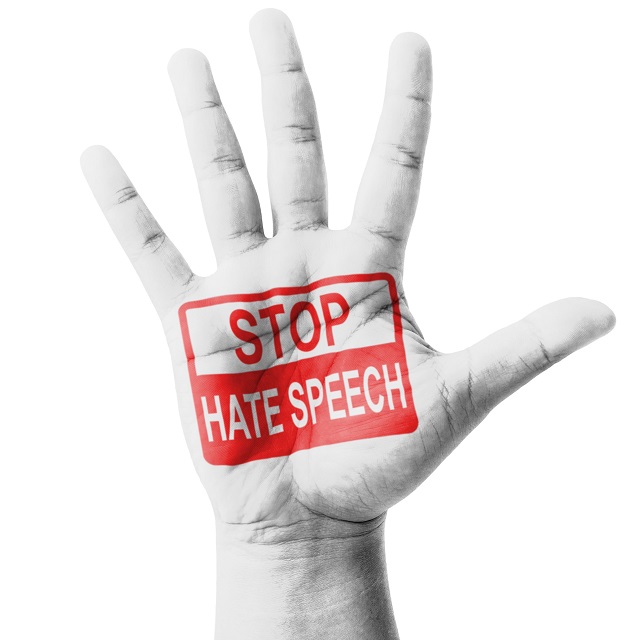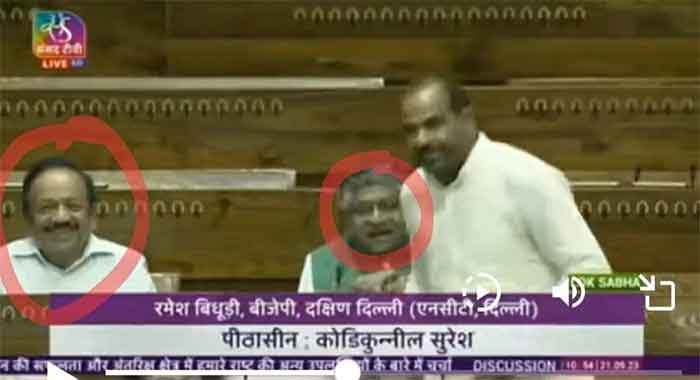by Thomas Klikauerand Thu Nguyen

Beneath the carefully crafted media image of sun-drenched beaches and the pushing of a culturally diverse nation, Australian society lies a concealed threat by hate speech. Much of today’s hate speech no longer dwells in our physical realm but, instead, lurks ominously and worse: anonymously in the vast space of the digital sphere.
Online hate speech takes place online with the purpose of attacking someone based on their race, religion, ethnic origin, sexual orientation, disability, gender, etc. Whether internet or not online hate speech always includes the deliberate targeting of individuals or groups. This malevolent digital specter – often hidden in obscurity – cast a dark, yet inescapable shadow on the structure of Australian society.
By 2023, Australia’s high online usage included 25.3 million internet consumers. It is a whopping 96.2% of the total population. Meanwhile, 21.3 million use online platforms, euphemistically called social media (read: anti-social media). In other words, 81.% of Australians are on it. Elon Musk’s Twitter – now called “X” – remaining the top platform for online hate with 5.8 million monthly active Australian users.
Online hate speech in Australia, is primarily fueled by systemic racism, discrimination, social division, and the right-wing hallucination of rigged elections. Australian online hate speakers target particular groups: women, people of color, the LGBTQ community, and Indigenous Australians.
Hate speech lives from disseminating false information and propaganda on social media sites – Twitter. Worse, hate speech has harmful effects on the development of government policies and activities for groups, such as, for example, mental health. Beyond that, hate speech is damaging to social cohesion in Australia.
According to a recent study by Purpose – a progressive digital campaign group – on online hate speech in September 2023, there are five main issues around online hate speech in Australia. The research reveals what has been happening most recently in the digital ghost sphere:
- The trumping up of so-called criminality in a town called Alice Springs town;
- a story on right-wing Katherine Deves regarding transgender persons;
- a Chinese-language publication’s campaign against Indian migrants;
- reactions to the Labor government’s recent improvements to humanitarian visas; and,
- discuss about First Nations and White Possessive.
Alice Springs town was in the middle of petty and other crimes in January 2023 based on by the Northern Territory Police. It showed a 40% to 60% surge in crimes like break-ins, property damage, domestic violence-related assaults, and alcohol-related assaults during the year leading up to November 30, 2022.
Worse, when statistics were released, Australia’s Murdoch dominates right-wing media responded with the usual sensationalism and fervor, using terms like crisis, wave, war zone, and national disgrace to describe the circumstances. This phenomenon – spiced up by online commentary – led to insecurity, hate, and unstable communities.
Uber-conservative Katherine Deves – welcomed into the ranks of Australia’s conservative media monopoly – expanded her online presence based on anti-transgender advocacy. She is a former conservative political party candidate earning her questionable prominence for her strong anti-transgender beliefs.
This, she aired online and in the media. She rose to engineered media celebrity as the Liberal Party’s candidate for Warringah in the May 2022 federal election – funnily, the term “liberal” means conservative, if not reactionary in Australia’s political landscape.
Back at Katherine Deves, since 2021, she has been a regular contributor and pundit on numerous issues, including her anti-transgender attitude, and regularly hosted shows in 2023 on Murdoch’s Sky News Australia.
Her dehumanizing conduct has prompted an increase in anti-trans editorial stances in Australia’s conservative and reactionary media. This resulted in transgender people being marginalized, dehumanized, and excluded from the wider Australian community.
In the adjacent case, a Chinese-language publication conducted a campaign against Indian migrants through Mandarin articles. This was highly unusual in Australia’s media. It often involved anonymous or pseudonymous authorship.
These articles consistently portray Indian individuals as a threat to Australian society and the life prospects of Chinese Australians, framing them as culturally deficient. This narrative is pervasive throughout the articles, from headlines to content, and interactive polls.
The consequences of this campaign include promoting negative stereotypes and exclusion of Indian people in Australia, exacerbating divisions, and polarized beliefs within the community.
There were reactionary reactions to Labor’s amendments to humanitarian visas. These further encouraged hate speech and online discrimination, dividing society and was directed towards the marginalization of sections of Australia’s population.
This kind of hate speech is detrimental to mental health. It undermines social cohesiveness and tarnishes Australia’s otherwise rather welcoming culture. Hate speech is affecting immigration, Australia’s society, culture, and economy. It de-emphasizes the significance of a cohesive and harmonious community.
Finally, Purpose’s research also discusses First Nations and White Possessive. It found that Australian racism can be found on various social media platforms. On social media, 88% of respondents have seen incidences of prejudice towards Indigenous people.
According to a report called – Social Media Mob: Being Indigenous Online – the usage of social media by Indigenous Australians has a wide-ranging impact on their lives. Because of online bigotry and abuse, indigenous users frequently prefer not to identify as indigenous online.
Although online platforms can help Indigenous Australians with legal services, education, well-being, suicide prevention, etc., they are worried about the fact that their online participation can generate violent or racist reactions.
The unsavory racist history is not only the deliberate de-recognized Aboriginals under the hocus-pocus hallucination of Terra Nullius but also rafts of white massacres on black people. This deep-seated racism, spanning practices like blackbirding, Australia White Policy, stolen generation, etc. – also included hate speech that has now moved on to online hate speech.
These findings of the Purpose group provide a comprehensive assessment and shed light on the concerning impacts of online hate speech in Australia. Yet, addressing online hate speech through education can be effective. Policymakers should aim to strengthen the democratic foundation for anti-hate speech policies and programs.
Firstly, it is crucial to conduct comprehensive research and to monitor online hate speech. This allows for the creation of guidelines for policy-makers and practitioners. Investigating specific techniques of online platforms that foster hate speech, as well as examining the roles played by participants in our information ecosystem will assist this process.
Balancing freedom of expression and social responsibility to counteract online hate speech by creating an effective legal mechanism to deal with hate speech remains imperative. This is a powerful instrument for controlling, minimizing, and perhaps even eliminating hate speech.
It is also useful when it comes to punishing those who deliberately breach it. Legislators should create national definitions of cruel, dehumanizing, and hateful speeches and discourses. It should also broaden the spectrum of groups covered by applicable legislation, and enforce penalties for hate speech and misinformation and disinformation.
Secondly, policymakers should create a realm of internet safety. Many laws already regulate discrimination and hate speech and apply it to social media businesses that operate in other countries. Straight-forward laws need to strike a balance between the human right of free expression and other essential rights.
Thirdly, one might also think of streamlining legislative oversight of news media by providing media regulators with more power to handle the complexities of modern online publishing. Perhaps online media are more than a toaster with pictures as Ronald Reagan’s FCC stooge once said – the sheer stupidity of conservatives knows no end.
Fourthly, policy-makers should set up industry standards – and not the industry itself. Following the neoliberalism phantasm of industry self-regulation is like asking Al Capone to self-regulate crime. Instead, a meaningful partnership with communities and experts, and with adequate funding for enforcement might secure a safe space set against online hate speech.
Fifthly, we need to enhance the responsibility of social media corporations. This will play a very essential in preventing the promotion and amplifying of dehumanizing hate speech. Currently, online hate speech is still too widely accepted. The need for legislation is to amend or institute new laws, thereby superseding long-standing, overdue policies.
Key steps to end hate speech include requiring, for example, online corporations to explain how they manage content filtering and undertaking algorithmic audits. This needs to be done by both – regulators and independent researchers.
Furthermore, businesses must be held accountable for the transmission of damaging content and offensive comments, as demonstrated by the above cases in which right-wing extremist ideologies and false information can create real-world violence – cyberviolence.
To support this, a formal duty of care must be established. This is to be done because of the corporate failure of platforms like Facebook and Twitter that have been – rightly – criticized for their roles in spreading disinformation and hate speech.
For example, in June 2023, Australia’s eSafety umpire issued a legal notice against Twitter in response to an increase in online abuse and offline hate crimes. Beyond this, an increase in funding for media literacy programs is needed. Comprehensive media literacy programs do help create a commitment to democratic society engagement and individual empowerment.
Governments and industry stakeholders should invest aggressively in efforts that increase understanding of relevant legislation and industry norms of practice. These educational programs will also assist people in becoming more knowledgeable and proactive in dealing with online hate speech.
They will teach communities and people how to recognize and report dehumanizing hate speech, as well as make sure that people understand their rights in dealing with hate speech. To convey these critical skills and insights, public workshops, online courses, and educational campaigns, for example, need to be beefed up.
To address our current lack of knowledge on hate speech, new projects using AI models to automatically recognize should be set up. These AI-driven programs can investigate real-world reactions to online hate by collecting datasets containing harmful social media posts and the immediate reactions they evoke.
Finally, enhancing support and educational possibilities for specialized journalists and news media workers will create awareness of hate speech. These programs should provide participants with a clear knowledge of the impact hate speech has on society.
This also applies discriminatory content that is unintentionally contributed as well as to the propagation of dehumanizing and hateful speech. Institutional structures for ethical reporting need to flank this.
In the end, eradicating online hate speech is critical to developing a more inclusive and democratic culture – beyond the Australian case. This necessitates the creation of a digital world that is characterized by respect, understanding, and inclusivity.
To accomplish this, coordinated actions and meticulous preparation are required, as well as lobbying for tangible regulatory measures. Of critical importance are investments in media literacy programs geared towards online participants as well as media professionals.
All of this can limit the impact of hate speech in the digital domain and develop a more democratic and inclusive online environment. In a sharp rejection of the neoliberal delusions of a free market and the semi-pathological idée fixe of industry self-regulation, it demands a combination of government regulation and the raising of awareness about online hate speech.
Thomas Klikauer teaches at the Sydney Graduate School of Management at Western Sydney University, Australia. He has nearly 900 publications including a book on the AfD.
Thu Nguyen is a barrister and an independent researcher with an MBA from the United States and an M.B in leadership from Australia. Her diverse career has spanned law, business, organizational behavior, social science, and psychology, driving her enthusiasm for pursuing a Ph.D.













































